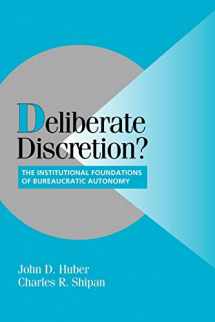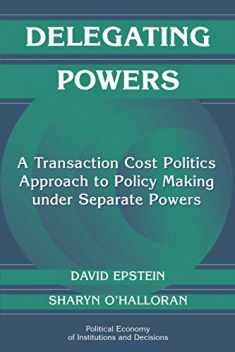
Deliberate Discretion?: The Institutional Foundations of Bureaucratic Autonomy (Cambridge Studies in Comparative Politics)
Book details
Summary
Description
The laws that legislatures adopt provide a crucial opportunity for elected politicians to define public policy. But the ways politicians use laws to shape policy vary considerably across polities. In some cases, legislatures adopt detailed and specific laws in an effort to micromanage policymaking processes. In others, they adopt general and vague laws that leave the executive and bureaucrats substantial discretion to fill in the policy details. What explains these differences across political systems, and how do they matter? The authors address these issues by developing and testing a comparative theory of how laws shape bureaucratic autonomy. Drawing on a range of evidence from advanced parliamentary democracies and the U.S. States, they argue that particular institutional forms--such as the nature of electoral laws, the structure of the legal system, and the professionalism of the legislature--have a systematic and predictable effect on how politicians use laws to shape the policymaking process.


We would LOVE it if you could help us and other readers by reviewing the book
Book review




